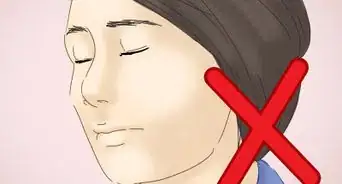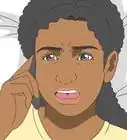This article is based on an expert interview with Damaris Vega, MD, conducted by wikiHow Staff Editors. Dr. Damaris Vega is a board certified Endocrinologist. She graduated Magna Cum Laude from the Pontifical Catholic University of Puerto Rico with a BS in General Science and subsequently earned an MD from the Ponce School of Medicine, Ponce, PR. During medical school, Dr. Vega served as president of the Alpha Omega Alpha Medical Honor Society and was selected as her school's representative for the American Association of Medical Colleges. She then completed a residency in Internal Medicine and a fellowship in Endocrinology, Diabetes, Mineral, and Metabolism at The University of Texas Southwestern Medical School. Dr. Vega has been recognized for excellent patient care multiple times by the National Committee for Quality Assurance and received the Patients' Choice Award in 2008, 2009, and 2015. She is a fellow of the American College of Clinical Endocrinologists and is an active member of the American Association of Clinical Endocrinologists, the American Diabetes Association, and the Endocrine Society. Dr. Vega is also the founder and CEO of Houston Endocrinology Center as well as a principal investigator for multiple clinical trials at Juno Research, LLC.
This article has been viewed 1,198 times.
Catching a thyroid problem early allows you to start working with a doctor to get the treatment you need, but what are the early warning signs should you be looking out for? In this video, endocrinologist Damaris Vega explains some of the early symptoms of both hypothyroidism and hyperthyroidism, as well as what causes thyroid problems in the first place.
Key Takeaways
- There are two main types of thyroid problems: hypothyroidism and hyperthyroidism.
- People with hypothyroidism often experience weight gain, lethargy, dry skin, hair loss, and an irregular menstrual cycle
- People with hyperthyroidism often experience anxiety, increased heart rate, and exhaustion.
Video Transcript
You have to differentiate a patient that has hypothyroidism, which is that the thyroid gland is not producing enough hormone, or you have the patient with hyperthyroidism that is completely the opposite, that the thyroid is overproducing the thyroid hormone. So two different sides of the spectrum. So you have the hypothyroid patient who complains of, you know, weight gain, tiredness, lethargy, dry skin, hair loss, irregular menstrual cycle. And then you have the hyperthyroid patient that is totally the opposite. A very anxious person that can’t sleep well that has palpitations all the time, which means increasing the heart rate, again feel tired but it's a more overwhelming tiredness. It's like, “Okay I'm going upstairs now. My heart rate goes up pretty quick.” But that lack of sleep is very disturbing for those patients. Now in terms of what causes that, the majority of the cases, either hypo or hyperthyroidism, are due to an autoimmune disease. So for hypothyroidism we have Hashimoto’s thyroiditis, which is when the body creates antibodies against our thyroid peroxidase enzyme. And then you have in the hyperthyroidism side Grave’s disease, which is when the body produces the thyroid-stimulating immunoglobulin that will accelerate the thyroid, you know the production of the thyroid hormone on your body. And there's obviously other reasons for people to be hypo or hyperthyroid but those are the most common ones.

























































